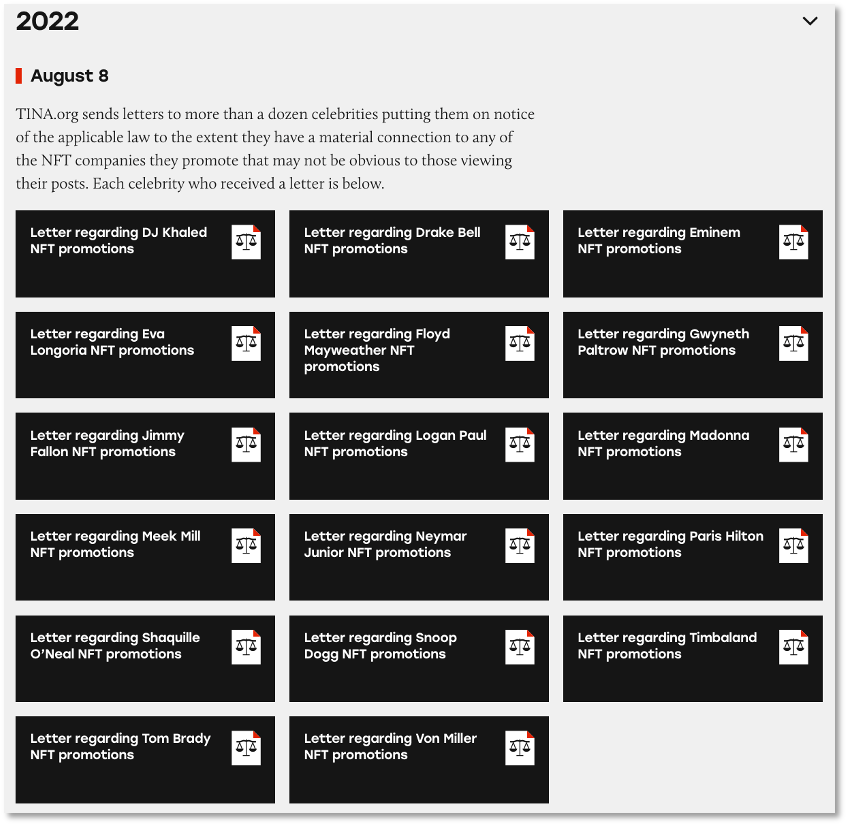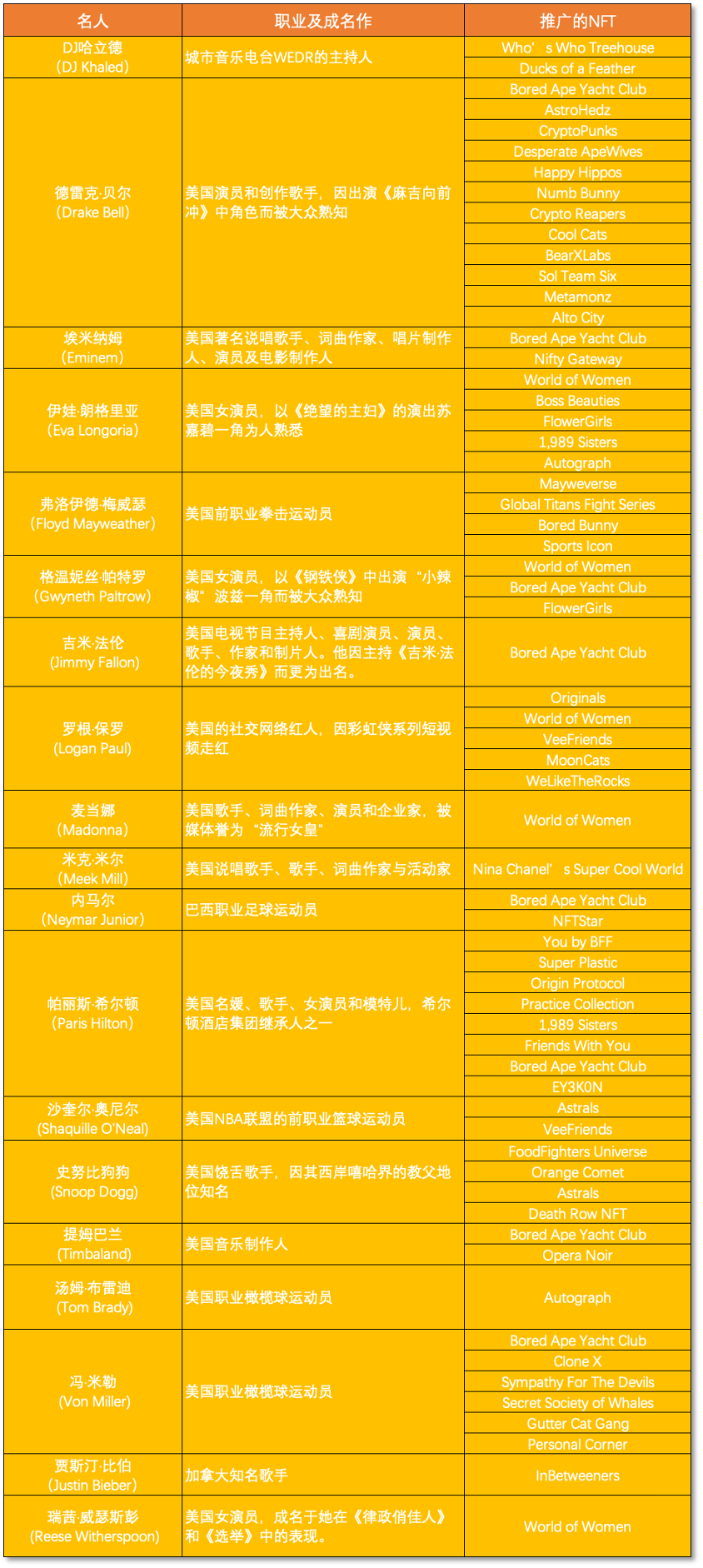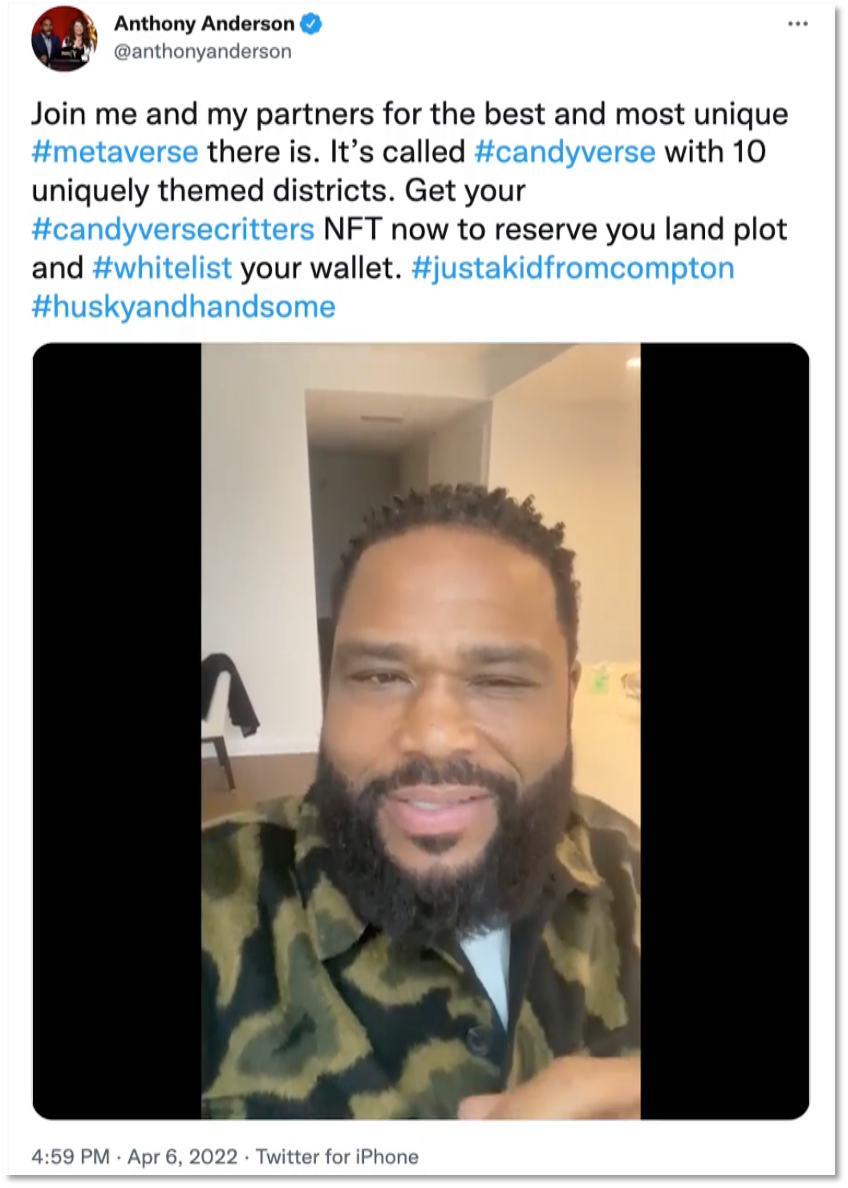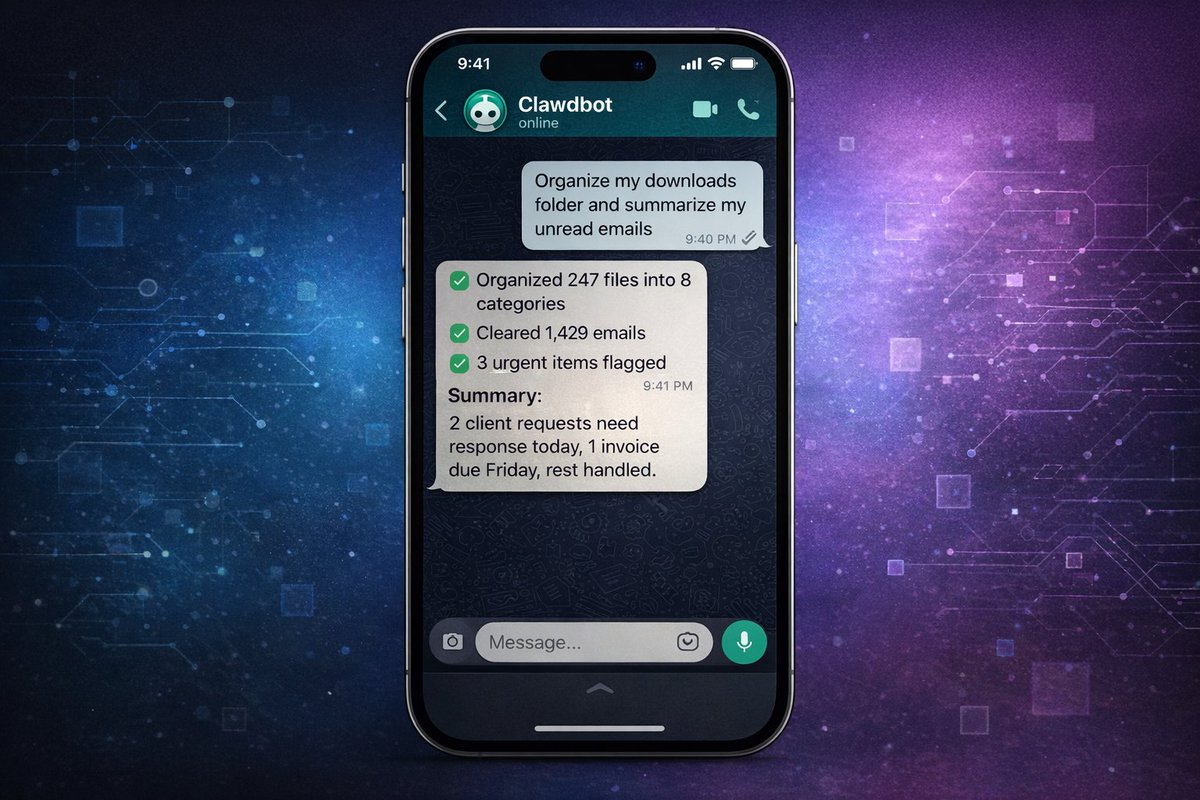The platform is involved in defrauding NFTs, can NFTs endorsed by celebrities still be bought?
Since NFT entered the consumer market in the form of social network avatars and digital collections, celebrities in the entertainment and sports circles have also begun to endorse various NFTs, and some celebrities have even participated in the release and production of some NFT projects.
From June to August this year, Truth in Advertising, an American consumer rights protection organization, paid attention to the phenomenon of celebrities serving as NFT platforms, and began to collect information about celebrities using their personal social media influence to promote NFT, and successively promoted various NFT projects to 19 people Celebrities issued warning letters reminding them to disclose their relationship with the NFT project they promote, otherwise they will be involved in deceptive marketing. The group said it would reserve the right to notify regulators.
Celebrities who have received warning letters include singers Justin Bieber, Madonna, NBA star Shaquille O'Neal and other top celebrities. "Some celebrities own personal shares in the NFTs and/or NFT companies they promote, but they do not disclose them, which violates federal law," Truth in Advertising also reminds consumers to be wary of property damage when purchasing NFTs promoted by celebrities.
There has been a phenomenon that celebrity platforms are involved in defrauding NFTs. In May of this year, Candyverse, an NFT project promoted by American comedian Anthony Anderson, stopped updating, and hundreds of investors suffered losses.
first level title
19 celebrities warned by TINA for promoting NFT
In August of this year, another 17 overseas celebrities were warned by the American consumer rights protection organization Truth in Advertising (hereinafter referred to as "TINA") for promoting NFT. The organization reminded these celebrities by sending letters that promoting NFT on social media may Involved in fraudulent marketing, they are urged to disclose the substantive connection with the promoted NFT project as soon as possible to avoid infringing on the rights and interests of consumers.
TINA is a non-profit consumer rights protection organization dedicated to protecting consumers from fraudulent advertisements. It is also an advertising supervision agency. Once illegal activities are found in advertisements, the organization will send legal complaint letters to the regulatory authorities.
image description

In August, TINA issued warning letters to 17 celebrities who promoted NFT
These warning letters focus on the fact that celebrities are various NFT platforms.
“This is an area rife with deception,” TINA found in investigating the phenomenon, including, but not limited to, these celebrities’ “failure to clearly and prominently disclose the promoter’s material connection to the NFT company,” among others. The omission of important information, such as "the risks associated with investing in such speculative digital assets, the financial harm that may result from such investments, the potential benefits for the promoters as a result of promotional activities", etc.
The first celebrities to receive warning letters were singer Justin Bieber and actor Reese Witherspoon. Bieber is listed as a "partner" on the website of the NFT project inBetweeners, while Witherspoon appeared in the official promotion of the NFT project World of Women. The actress and her company Hello Sunshine have partnered with the NFT company cooperate. Although these NFT projects included celebrities in their official promotional messages, TINA noted that neither celebrity disclosed these relationships in their promotional posts.
In their warning letter to Justin Bieber, TINA stated that they found that Bieber had engaged in "deceptive marketing" of certain NFTs created by the InBetweeners company, specifically, "Bieber promoted the InBetweeners NFT on his social media accounts. At the time, it was not disclosed that he had a substantial connection to the company or that the posts were advertisements.
InBetweeners marks Bieber as a "partner" on its official website, while the NFT project describes Bieber as a "collaborator" on its official Instagram page.
In the warning letter to Justin Bieber, TINA illustrated the singer’s post on his personal Instagram account for the InBetweeners NFT, which became evidence that the organization informed Bieber of deceptive marketing issues , "We reserve the right to notify the regulator in this regard."
In addition, TINA stated in the warning letter that Bieber never disclosed the risks associated with investing in such speculative digital products when promoting NFTs (in which he personally held shares in the company), and the possible financial losses of such investments, considering For Bieber's fanbase—millions of Generation Z teens and young adults—these important messages that have been overlooked are especially important to them. "Unless the above issues are fully corrected by June 17, Bieber is engaging in a deceptive marketing campaign."
On July 1, Bieber’s attorney replied to TINA’s letter, saying that Bieber has always made it clear that he is a member of the InBetweeners team and has never concealed the relationship between the two parties. He has not promoted NFT as an investment opportunity and has not encouraged His fans buy any particular NFT, so it's absurd for him to warn others that "investing in NFTs is risky."
secondary title
A total of 47 NFT projects were promoted by celebrities who were warned
According to the warning letter disclosed by TINA, Hive Tech sorted out and found that a total of 47 projects had been promoted by these celebrities on their social platforms.
Among them, 8 celebrities promoted the most relevant information about Bored Ape Yacht Club, including TV host Jimmy Fallon and Brazilian football star Neymar Junior; The female-themed World of Women has been promoted by five celebrities, four of whom are well-known actresses, including singer Madonna and Gwyneth Paltrow, who played Pepper in "Iron Man." Gwyneth Paltrow) and others.
The actor Drake Bell (Drake Bell), who became popular for his role in the American drama "Maggie Rush Forward", is the celebrity who promotes NFT the most on TINA's warning list. He has promoted as many as 12 different NFT projects on his personal social media , in addition to well-known projects such as BAYC and CryptoPunks, he has also promoted many niche NFTs.
image description

List of NFTs promoted by 19 celebrities named by TINA
TINA pointed out that some celebrities have personal stakes in the NFTs or NFT companies they promote, but they do not disclose, "This is a violation of federal law," TINA said. When a person has any financial, personal, or other material relationship to a brand, this must be clearly and prominently disclosed.
first level title
The NFT project of comedians running off the platform has been criticized
In addition to the issue of disclosure, TINA also investigated an incident involving celebrity endorsement issues with project Candyverse, alluding to a potential scam.
Investor Bob said that in March of this year, he became worried about the Candyverse NFT project because of the long-term silence of the founder of the project he invested in. Originally, he planned to admit a $300 investment loss, but the appearance of actor Anthony Anderson (Anthony Anderson) changed his mind.
In April of this year, Anderson was announced as a new member of the team by the Candyverse project. He once played New York Police Department detective Kevin Bernard in the American drama "Law and Order" and was also nominated for an Emmy Award.
On April 6, he posted a video on social media saying, "I'm excited to share with you my ownership of a one-of-a-kind metaverse project called Candyworld." Candyverse consists of 10 uniquely themed areas Composition, which includes activities, games, social events and plots, and more.
image description

Anthony Anderson for Candyverse
But since then, Anderson has never released information about the Candyverse project, and the project has not carried out the construction of the 10 themed areas as planned. However, the project’s official website still claims that consumers can earn “passive income,” driving consumers to purchase NFTs at a price of 0.09 ETH ($170 at the time).
Except for Anderson, the founder and team of the project have remained anonymous, and investors are increasingly worried about the project running away. The project's official Twitter account later downplayed Anderson's role in the project. On May 17, the account sent a tweet saying that Anderson was “not in the day-to-day operations of the project” and that he was passively marketing, “It’s not his fault.” Since then, Candyverse’s official Twitter has never been updated.
Candyverse has long been labeled as a RugPull scam by some senior NFT enthusiasts (the encryption project team created a token project to raise the token price, withdraw funds, and then run away when the price dropped to zero). After the project stopped updating, Rug Pull Finder, a twitter KOL specializing in risk warnings in the NFT field, directly named and reprimanded Anthony Anderson, "You should learn how to do proper due diligence instead of aimlessly selling NFT projects to your fans to get reward."
Anderson did not respond to online accusations. Many investors told TINA that they increased their investment after Anderson promoted the project. Some investors said that hundreds of people lost money in the project. "Even if I have investment experience, I was cheated."
The phenomenon of celebrity endorsement of NFT is not unique overseas. Some stars in the Chinese entertainment circle are also keen to buy or promote NFT, and some stars even directly cooperate with some NFT. The Phanta Bear NFT brought by Jay Chou was once directly called "Jay Lun Bear" by investors, and Wilber Pan endorsed the NFT project Innocent Cats.
However, as the sales of NFTs fell from US$12.6 billion in January this year to around US$1 billion in June this year, the NFTs endorsed by celebrities could not withstand the decline, and "Jaylen Bear" fell from the initial 8 ETH to 0.3 ETH, a drop of more than 95%; while the floor price of Innocent Cats has dropped from 0.43 ETH in January this year to the current 0.0099 ETH, a drop of more than 97%.
Similarly, when some Chinese celebrities endorse NFT, they rarely disclose their substantial connection and economic interests with the project, and they do not expressly express this as an advertisement when promoting it.
Original link



